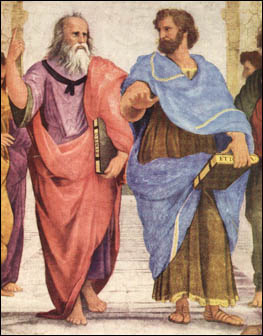On September 27, John Mearsheimer and Stephen Walt were invited to the University of Chicago to speak about their book
The Israel Lobby and U.S. Foreign Policy. On October 8 they were invited to deliver the same speech at Columbia University. On November 26, they arrived at Princeton with the lecture accompanied by Robert Keohane of Princeton University. All three lectures were recorded and published in the University Channel Podcast. (
Chicago.
Columbia,
Princeton) The talk is the same, obviously the questions by the end are different, but I cannot vouch for those in the second (or third) lecture as I couldn't sit through the same lecture again. It needs to be pointed out that audio quality of the second (Columbia) lecture is substandard. I will repost the review I wrote on the first appearance:

The University Channel Podcast published the audio of a lecture by
John Mearsheimer of the University of Chicago and
Stephen Walt of Harvard, about The Israel Lobby in the US, after
their book about the same subject. This is a very vivid lecture with a good question round in the end. The authors get to make their point that there is a very effective Israel Lobby. The Lobby is not a lobby of the Jews, neither of the State of Israel, but rather an American interest group, backed by Jews and also Evangelical Christians. They claim that the lobby has a great influence on the US foreign policy and that this influence at times turns out to be neither beneficial to the US nor to Israel.
The Israel Lobby neither reflects the opinion of the vast majority of American Jews, nor, so it seems to me, represent the opinion of the Israeli government or even the majority of Israeli's. The lecture confirms my impression that those who are actively lobbying for Israel in Washington - or claim to do so - tend more to the hawkish, nationalistic side of the spectrum. This goes as well for the Jews involved as well as the Christians. It means for me, as an Israeli in favor of a peaceful Middle-East policy a lose-lose situation. Either one has this hawkish lobby or there is no lobby at all and in both cases my interests are not served. It calls for a lobby inside the lobby.
My stomach turns especially when I hear Mearsheimer and Walt claim that the Lobby was not particularly in favor of the Oslo agreements. They say that the Lobby 'grudgingly' went along. I would expect that an movement that grudgingly goes along with a certain development, will jump of the train at any moment. Was that what happened when Rabin was murdered? How bad was the grudge of the Lobby for the peace process at that turn of events and in how far could it have saved the process afterwards and maybe chose not do so? I would have loved to ask THAT question.
Other posts on Israel:
5 Lessons for Peace,
The greatest threat to Zionism,
Israel, Iran and Terrorism,
The US and the New Middle East.
Share on Facebook







